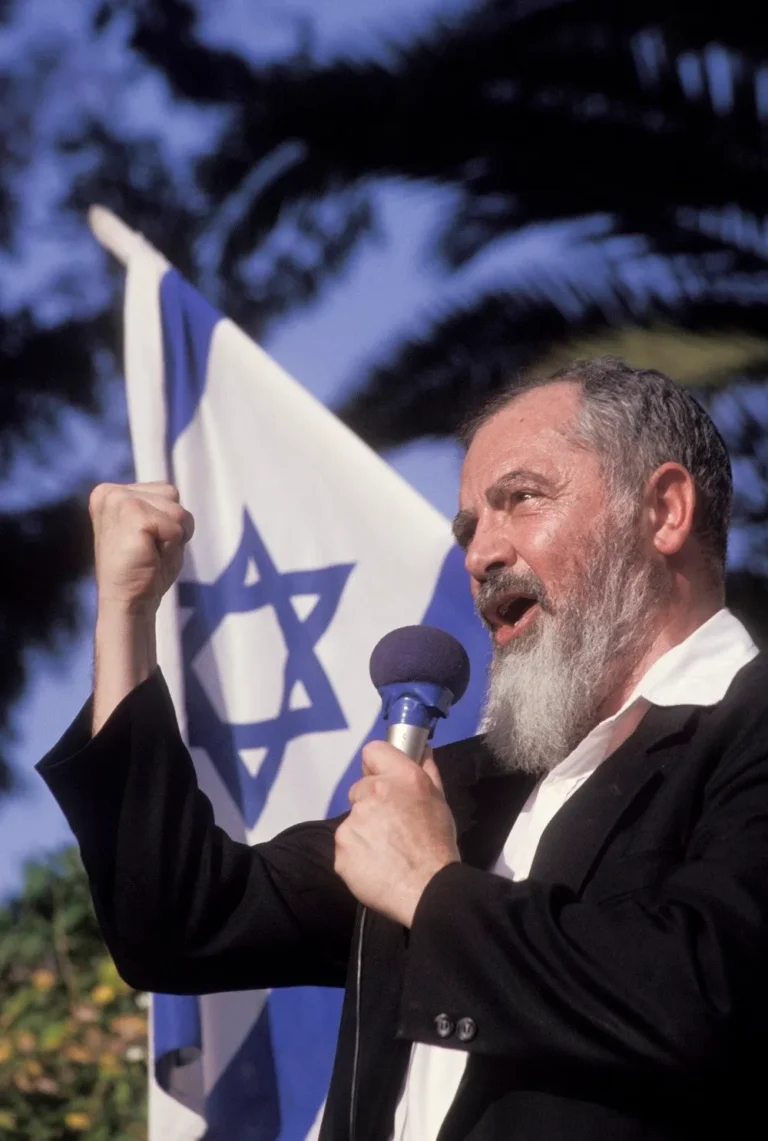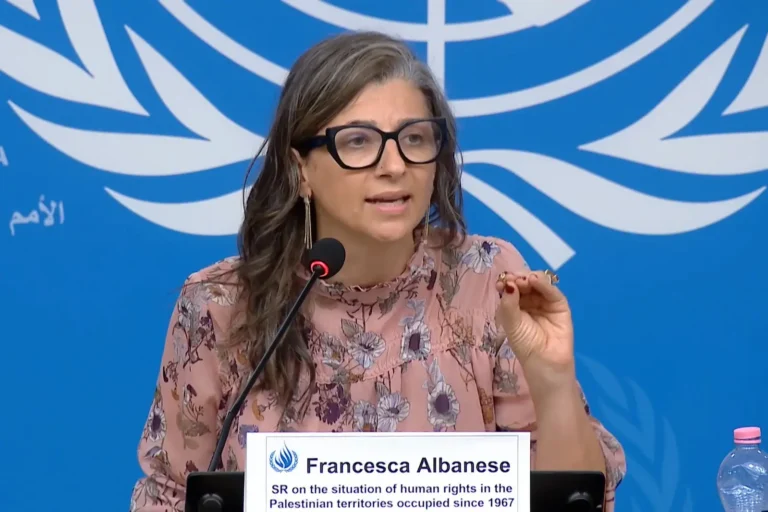by Andrea Tucci,
The ideological father of the settler movement, Meir Kahane — extremist rabbi and founder of the Kach party — embodied a radical, ultra-nationalist, and provocative political vision based on Jewish supremacy and the total expulsion of Palestinians from historic Palestine.
Despite a terrorism conviction, in 1983 he was invited to speak at the University of Pennsylvania. What could have been an opportunity for dialogue instead became an unfiltered declaration of his ideology: Kahane openly called for ethnic cleansing, stating that once elected Prime Minister of Israel, he would make Palestinians understand that “we have no choice: either us or them.” His words chilled the blood of the Palestinian Americans present, many of whom still had family in the Occupied Territories.
His political career was cut short when the Kach party was banned by the Knesset (the Israeli parliament) for its openly racist views. However, the same law that barred those who espoused racist ideologies from entering the Knesset also excluded those who questioned Israel’s identity as the exclusive state of the Jewish people.
Despite the ban, Kahane’s ideas continued to circulate and deeply influence the Israeli right. In 1990, he was assassinated in New York by El Sayyid Nosair, an Egyptian militant who shot him at the end of a public speech.
Kahanist thought not only survived but took root, seeping into the darkest corners of Israeli politics and growing in the shadows until it reached positions of prominence. Kahane’s legacy is more alive today than ever: his once-marginal ideology has become an integral part of the dominant political discourse.
Key figures in Netanyahu’s government, such as Itamar Ben-Gvir (Minister of National Security) and Bezalel Smotrich (Minister of Finance), are direct expressions of this legacy. Both grew up within the ideological current of Kahanism and have helped transform what was once considered extremist, into a force capable of shaping government formation and policy direction.
Since 1996, Israel has developed a political and military language that has degenerated into dehumanizing rhetoric, where Palestinians are increasingly portrayed as an existential threat, as a subspecies.
Today, Kahanist thought is an integral part of the Israeli political system, legitimized and implemented through policies aimed at perpetuating the occupation, expanding illegal settlements, and the de facto annexation of Palestinian territories.
This is a mindset that fuels violence, legitimizes injustice, and enables the ongoing colonial genocide in Gaza. Understanding Meir Kahane’s legacy is essential to understanding how this situation came to be: a slow but steady radicalization of Israel’s political structures, where extremism and fanaticism have risen to the highest levels of power.
Now more than ever, Israel’s objective seems to be the erasure of Palestine — a Palestine without Palestinians — with the complicity and explicit support of U.S. President Donald Trump, who arms and backs Netanyahu in his ethnic cleansing project.
Since 2018, laws like the “Nation State Bill” have established that only Jewish Israelis (while Arab Israelis make up about 20% of the population) have the right to self-determination and independence.
A state, Israel, where the existence of a Palestinian state is effectively denied.
A state, from the river to the sea, for Jews only.
Photo of the article: Meir Kahane (1932–1990) was an American-Israeli rabbi, political activist, and extremist ideologue, founder of the Kach movement, known for his ultra-nationalist, anti-Arab, and theocratic positions.




